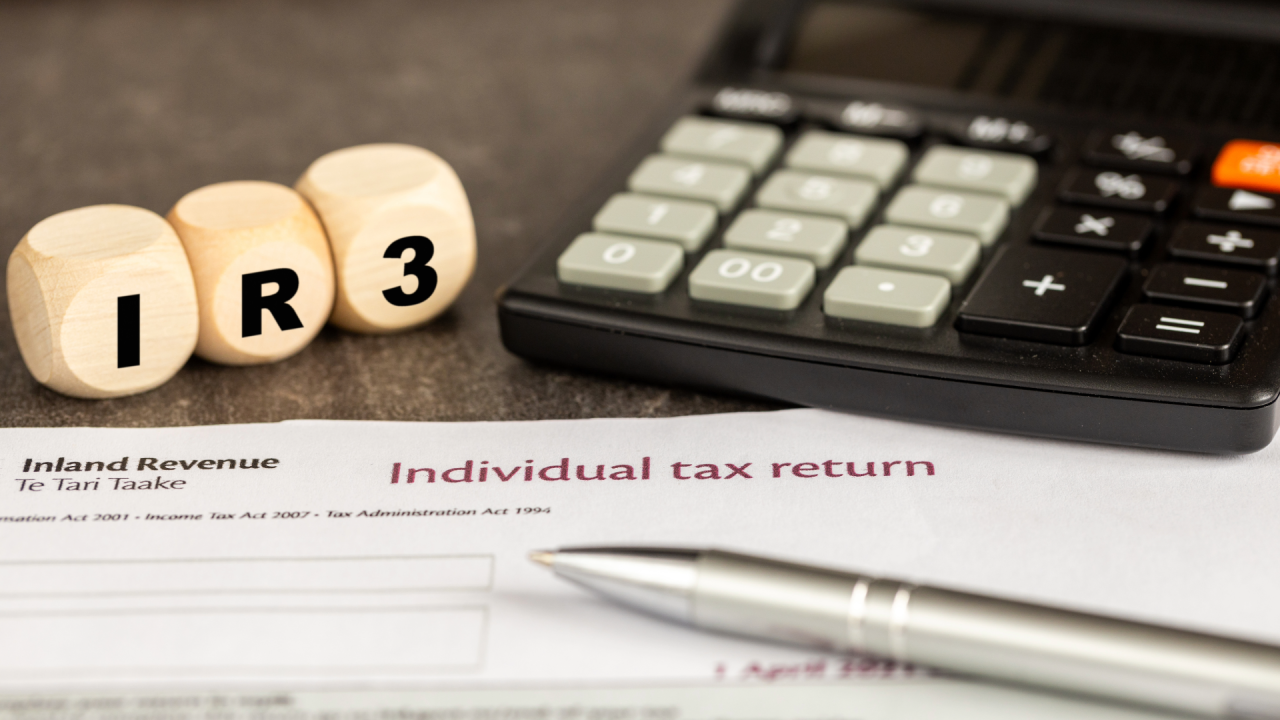Filing your tax return – should you do it as soon as possible after the year-end, or wait?
Many taxpayers wonder about the best approach.
Why I Recommend Waiting Until at Least 15 May
In most cases, it’s best to wait until at least 15 May – around six weeks after the tax year ends on 31 March.
Why?
Because IRD provides pre-populated tax information that’s typically finalized after this date.
Filing before then could mean missing important income details, leading to unnecessary amendments.
Once you’ve waited until 15 May, you might wonder – should you file right away or wait even longer?
The answer depends on your situation.
Here are four key factors to consider.
1. Do You Even Need to File Your Tax Return?
Not everyone needs to file a tax return. If all your income is taxed before you receive it (e.g., salary with PAYE deducted), IRD may automatically assess your tax position—meaning no action is required.
However, if you have income that isn’t automatically reported to IRD, you must manually file a return. This includes:
- Rental income
- Overseas income
- Cryptocurrency earnings
- Self-employed or contractor income
- Any other untaxed income
If you earn any of the above, filing a return is mandatory to ensure you meet your tax obligations.
2. Understanding the Filing Deadline
In New Zealand, the standard deadline for filing an individual income tax return is 7 July following the end of the tax year (1 April – 31 March).
However, if you have a tax agent, you may qualify for an extension until 31 March of the following year, giving you more time to file accurately.
📌 Example: For the year ending 31 March 2025, the standard filing deadline is 7 July 2025, but with a tax agent, you may have until 31 March 2026.
3. Should You File Soon After 15 May? The Benefits
If you’re ready to file after 15 May, here’s when it makes sense to submit your return early:
✔ Expecting a refund? File early to receive it sooner.
✔ Want peace of mind? Avoid last-minute stress before the deadline.
✔ Applying for a mortgage or loan? Some lenders require a recent tax return as proof of income.
✔ Business owners. Provisional tax payments are due in three instalments throughout the year – early filing may help with accurate cash flow planning.
4. Does Filing Late Have Advantages?
Filing later can sometimes be beneficial:
✔ More time for accuracy. If you have multiple income sources, waiting ensures all data is included.
✔ Access to off-peak accounting services. Accountants are often less busy between October and December, which could mean better rates. Also, your tax tax agent or accountant has more time to strategize and optimise your return, rather than processing it quickly in peak season.
✔ Better forecasting for next year’s tax payments: If you pay provisional tax, waiting longer allows you to assess your cash flow and financial position before setting future payments.
While filing later has advantages, always meet the final deadline to avoid penalties.
Conclusion: What’s the best time to file?
✔ Expecting a refund? File early to get your money faster.
✔ Have multiple income sources? Wait until after 15 May for accuracy.
✔ Want to avoid last-minute stress? File ahead of the deadline.
✔ New business owner? Consider the early tax payment discount offered by IRD.
No matter when you file, accuracy is key – so plan ahead to file with confidence.
Final Tip: If you’re unsure about your tax situation, consulting a tax agent can help you choose the best timing for your specific needs.
– Baqir Hussain, FCCA
Director, Finex Chartered Certified Accountants
Check Out More Free Resources
- Sign up for my weekly ‘Tax Made Simple’ newsletter HERE.
- Watch my YouTube Channel for Free Tax Tips HERE.
- Get my book ‘10 Big Property Tax Mistakes That Cost Thousands, And How to Avoid Them‘ HERE. (Video series on YouTube).
Take the Next Step
- Want to work with me? It takes 3-minutes.
- Need urgent specific advice? Book a Strategic Consultation.
- Want to learn the basics of New Zealand small business tax?
Join my waitlist HERE – Small Business Tax Course for Business Owners launching soon. Email subscribers will be the first to know.

